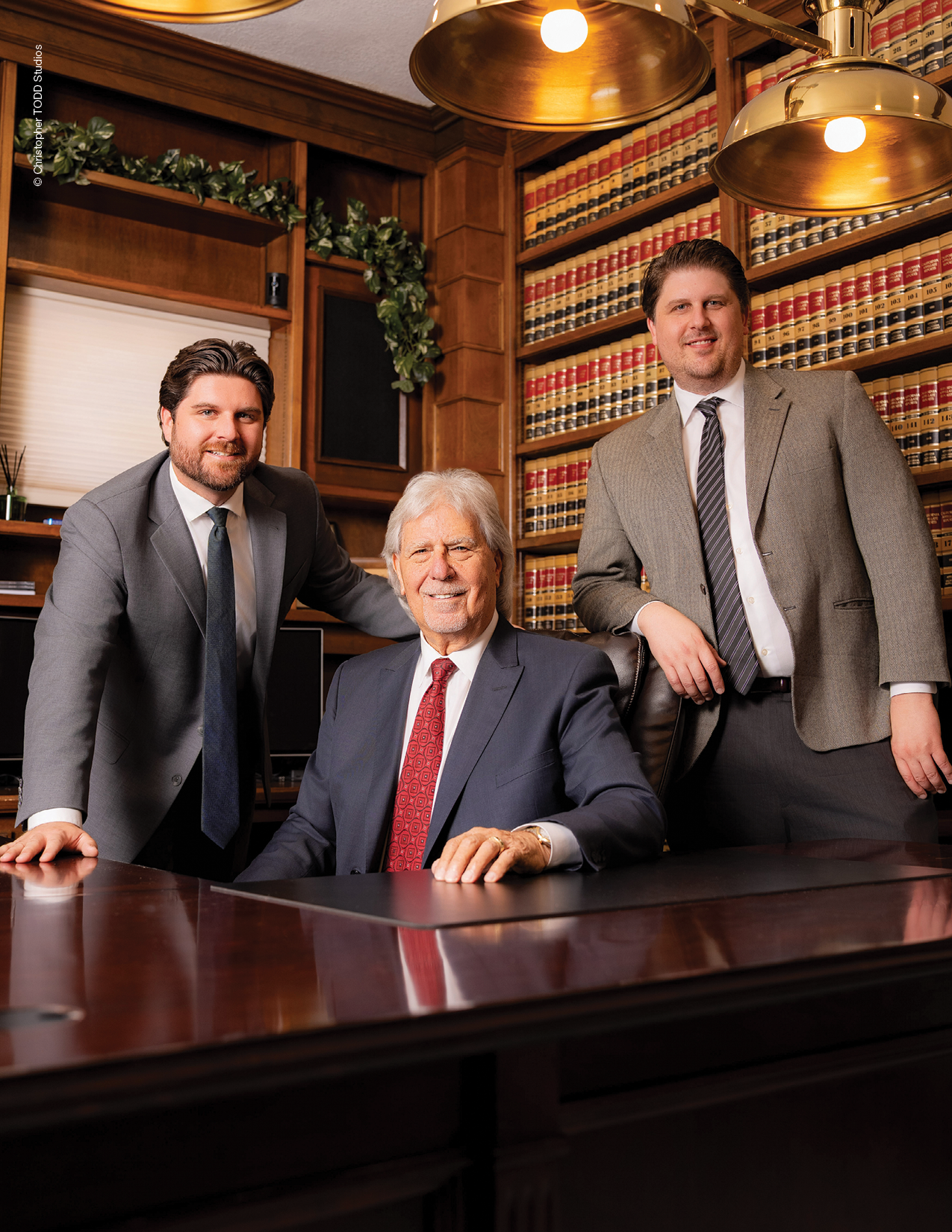Ryan McKeen is a co-founder of Best Era, LLC. Ryan’s extensive background as a lawyer and law firm owner drives his commitment to helping the legal community thrive. Ryan is dedicated to enriching the legal field by sharing insights from his experience. He co-authored the best-selling books “Tiger Tactics: Powerful Strategies for Winning Law Firms” and “CEO Edition,” and regularly speaks at national legal conferences on topics including innovative marketing, artificial intelligence, law’s future, and effective management. Learn more at www.bestera.io.
Mark Cuban Is Right: The Only Legal Skill That Matters Now Is Making Machines Work for You
Mark Cuban doesn’t mince words. When I asked him for advice for my law students at UConn Law School, his response was brutally simple: “Become intimate with all the LLMs. Learn what they can and can’t do. Same with agentic AI.” He’s right. And most lawyers are completely unprepared for what’s coming.
The legal profession spent the last century perfecting human processes. We created elaborate systems for document review, legal research, contract drafting, and case management. We built pyramids of associates doing manual work that partners would review. We charged by the hour for tasks that should take minutes. Now Cuban points to the obvious truth: all those processes are dead weight. The firms that survive will be the ones that eliminate them entirely through automation.
The Process Problem Is Killing Legal Practice
Law firms are process factories. Junior associates spend 2,000 hours a year on document review. Partners waste days editing briefs that could be generated in seconds. Paralegals manage filing systems that should be automated. Clients pay $500 an hour for work that adds no real value.
Cuban nails it: “So much of law is spent on processes.” These processes exist because we’ve always done them, not because they need to exist. They’re the legal equivalent of using horses when cars are available. Every hour spent on process is an hour stolen from actual legal thinking and strategy.
The dirty secret is that most legal work isn’t legal work at all. It’s information processing, pattern matching, and document generation. These are exactly the tasks that LLMs excel at. A properly configured AI can review contracts faster than any human, spot issues more consistently, and generate first drafts that need minimal editing. Yet most firms still have associates doing this work manually, billing clients’ premium rates for commodity tasks.
This isn’t just inefficient. It’s malpractice. When better tools exist and lawyers refuse to use them, they’re failing their duty to serve clients effectively. The profession’s resistance to automation isn’t principled; it’s protectionist. We’re protecting outdated business models at the expense of access to justice.
Law Firms Are Having the Wrong Debate
Here’s what kills me: Right now, law firm management committees are sitting in conference rooms debating whether to allow ChatGPT or which legal AI vendor to select. They’re comparing Cocounsel to Harvey to Lexis+ AI. They’re drafting policies about acceptable use. They’re forming committees to study the issue.
They’re completely missing the plot. This isn’t a procurement decision. It’s not about picking the right product or crafting the perfect policy. It’s about fundamentally rewiring how lawyers think and work. While firms debate which walled garden to buy into, their competitors are teaching lawyers to be AI-native practitioners who can work with any tool that emerges.
The vendors selling “legal-specific AI” are laughing all the way to the bank. They’re charging firms tens of thousands per month for what amounts to GPT-5 with a legal wrapper. These firms think they’re buying safety and specialization. What they’re actually buying is limitation and dependency. Meanwhile, lawyers who know how to work directly with Claude or GPT-5 are running circles around them, switching between models based on the task, combining tools for complex workflows.
The real competitive advantage isn’t having the “right” AI tool. It’s having lawyers who understand AI deeply enough to use any tool effectively.
The New Core Competency: AI Fluency
Cuban’s advice cuts through the noise: become intimate with LLMs. Not familiar. Not competent. Intimate. This means understanding their capabilities at a granular level. Knowing when Claude outperforms GPT-5 for legal analysis. Understanding how to chain prompts for complex reasoning. Recognizing when an AI hallucinates versus when it surfaces genuine insights.
Most lawyers treat AI like a search engine. They ask basic questions, get basic answers, and declare the technology overhyped. They’re using Formula One race cars to drive to the grocery store. The lawyers who will dominate the next decade are those who understand these tools deeply enough to push them to their limits.
This isn’t about learning to code. It’s about learning to think in ways machines can execute. It means breaking complex legal problems into discrete, solvable components. It means understanding how to validate AI output and when to trust automated systems. It means knowing which tasks to delegate to machines and which require human judgment.
The skill hierarchy in law is inverting. Technical excellence used to mean mastering case law and procedure. Now it means orchestrating AI systems to handle routine work while you focus on strategy and client relationships. The lawyers who can make machines do their bidding will outcompete those who can’t by orders of magnitude.
It’s About Learning, Not Buying
The firms getting this right aren’t shopping for solutions. They’re building learning cultures. They’re running prompt engineering workshops. They’re creating internal labs where lawyers experiment with different models. They’re rewarding lawyers who find new ways to automate routine tasks.
One partner I know gave her entire team Claude and ChatGPT accounts and told them to break things. No policies, no restrictions, just pure experimentation. Within a month, they’d automated 40% of their document review process. Within three months, they were generating first drafts of briefs that needed minimal editing. They didn’t buy a legal AI product. They learned how to think with machines.
This is what Cuban means by becoming “intimate” with LLMs. It’s not about mastering a single tool. It’s about developing an intuition for how these systems think, what they can do, and how to push them beyond their obvious applications. It’s about learning the meta-skill of AI collaboration.
The firms still debating policies are already obsolete. While they worry about risk and compliance, their clients are using ChatGPT themselves and wondering why they’re paying lawyers to do work that machines can handle. The market won’t wait for the legal profession to get comfortable with AI. It will simply route around firms that refuse to adapt.
Building the Future Means Destroying the Present
Cuban’s most provocative point is his call to “invent new approaches.” He’s not talking about incremental improvement. He’s talking about burning down existing models and building something fundamentally different.
Consider legal research. The traditional approach involves hours in databases, reading cases, synthesizing holdings. The AI approach? Feed a well-crafted prompt to Claude or GPT-5, get a comprehensive analysis in seconds, then spend your time validating and refining. The entire research process collapses from days to hours.
Or take contract drafting. Instead of starting from templates and manually customizing clauses, AI-fluent lawyers generate entire agreements from natural language specifications. They iterate through versions in real-time during negotiations. What took weeks now takes hours.
These aren’t efficiency gains. They’re paradigm shifts. And they’re happening whether the legal establishment likes it or not. The firms clinging to traditional processes will be decimated by competitors who embrace automation. The choice isn’t whether to adopt AI but whether to lead or follow.
The Path Forward Is Clear
Cuban’s advice is a roadmap, but most firms are treating it like a shopping list. Stop looking for the perfect AI product. Start building AI-native lawyers.
First, master the tools. Not a tool. The tools. Spend serious time with Claude, GPT-5, Gemini, and emerging platforms. Learn their strengths, weaknesses, and quirks. Understand how to prompt effectively, validate outputs, and chain operations for complex tasks. Make this part of professional development, not a side project.
Second, create learning environments. Give lawyers time and space to experiment. Reward failure and breakthrough equally. Share discoveries across teams. Build internal knowledge bases of effective prompts and workflows. Make AI fluency as important as legal knowledge in performance reviews.
Third, identify processes to eliminate. Every manual task in your practice is a target for automation. Document review, legal research, contract analysis, brief writing, client communications. Map these processes, then systematically replace them with AI workflows.
Fourth, invent new service models. When routine work takes minutes instead of hours, billing structures must change. Value-based pricing, subscription models, and outcome-based fees will replace the billable hour. Firms that figure this out first will capture massive market share.
The legal profession stands at an inflection point. Cuban sees it clearly: the future belongs to those who can command machines to do their bidding. The rest will be left behind, clinging to processes that no longer need to exist, charging for work that machines do better.
The lawyers who get it: They’re not learning to be traditional lawyers. They’re learning to be legal engineers, process eliminators, and AI orchestrators. They’re not asking which legal AI product to use. They’re learning to use them all, to think with machines, to see possibilities where others see threats. They’re following Cuban’s advice to the letter.
The question for practicing lawyers is simple: Will you join them, or will you be replaced by them? Cuban has shown you the path. Stop shopping for solutions and start learning. The only thing left is to walk it.








